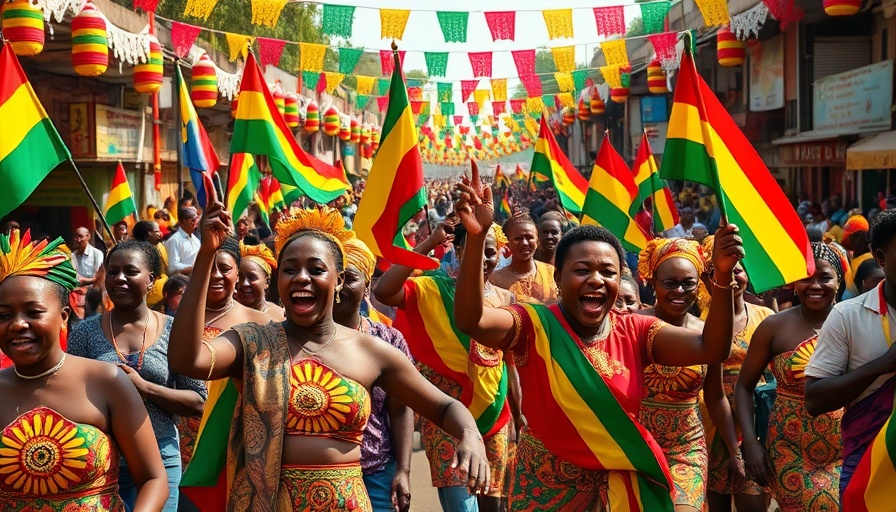
Understanding the Significance of the Democratic Republic of the Congo National Day
The Democratic Republic of the Congo (DRC) celebrates its National Day each year on June 30th, commemorating its independence from Belgium in 1960. This pivotal moment marks a central point in the DRC’s rich history, symbolizing its quest for self-determination and sovereignty. Unlike many other nations, the DRC's path to independence was fraught with complex social and political challenges, a reality that continues to shape its identity today.
The Journey Toward Independence
The struggle for independence in the DRC was characterized by intense political activism led by figures like Patrice Lumumba, who emerged as a prominent nationalist leader. His role emphasized the importance of unity and independence, echoing sentiments shared by leaders across Africa at that time. However, the DRC's transition was tumultuous, marked by a series of conflicts that eventually led to periods of dictatorship and civil unrest.
Current Events and Challenges Facing the DRC
In conjunction with the celebrations, it’s vital to recognize the ongoing struggles the DRC faces, including political instability, economic hardships, and persistent issues surrounding human rights. Reports indicate that over 60% of the population lives in poverty, with the health sector grappling with challenges like disease outbreaks and limited access to health services.
International Relations and DRC
The DRC's rich mineral resources position it as a significant player on the global stage, drawing attention from international investors and raising awareness of foreign relations, particularly with major players such as the United States and China. As the DRC navigates these relationships, fostering partnerships that reinforce sovereignty while addressing domestic challenges is paramount.
Celebrating Progress and Acknowledging Struggles
On National Day, Congolese communities globally take pride in their heritage while reflecting on the path forward. Celebratory events take place both in the DRC and in the diaspora, showcasing cultural performances and traditional cuisine. This not only unites the Congolese people but also educates others on the nation's history and ongoing narrative.
What Lies Ahead for the DRC?
The future for the DRC is uncertain, yet it presents opportunities for growth and development. As the government works to stabilize the nation, international aid and initiatives focusing on human rights and economic development are essential. The potential for sustainable development rests on collaborative efforts between national leaders, global partners, and civil society.
In this light, the observance of National Day serves not only as a reminder of past struggles but also as a beacon for healing and hope for a more prosperous future.
In conclusion, it is essential to understand the varied dimensions of the DRC’s National Day—not only as a celebration of independence but as an ongoing journey that encompasses resilience, hope, and the undying spirit of its people.
 Add Element
Add Element  Add Row
Add Row 



Write A Comment